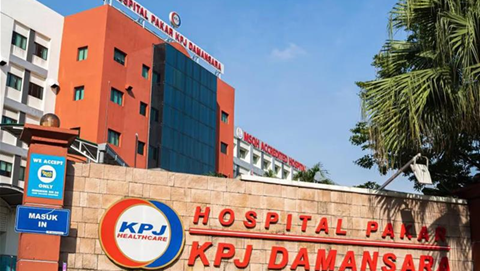The COVID-19 pandemic appears to be grinding itself to endemicity if the latest data from around the world is to be believed. Many are still experiencing its ebb and flow and witnessing its shifting epicentres.
While the world is still collectively gripped in pandemic lethargy, there is a sense of a new normality establishing itself among the more vaccinated nations, albeit one coupled with healthy caution.
In the wake of the pandemic, many industries are at the precipice of wholesale changes, and some will irreversibly be displaced. Yet, amidst the chaos, spectacularly disruptive STEM-related innovations have steadily been introduced. To paraphrase Dickens, 2021 is truly our own “best of times, worst of times”.
Evolutionary changes – in biology or elsewhere – typically transpire in a stepladder pattern, in response to severe perturbations, and once a better approach takes root, it becomes dominant, and rapidly leaves in its wake the détritus of the previous generation of technology.
As a sign of the times, we have entered a pivotal moment in history - a New Age of Wisdom, and the technological acceleration converging around the 4th Industrial Revolution.
In our digitalised world against an unseen enemy, our ability to sift through disparate stores of information remains our principle weapon, enabling us to engineer solutions to counter the virus, by employing simple (physical) and some complex (policy-based) strategic barriers to control the relentless spread of the disease.
The future for the ASEAN digital health-tech industry
With ASEAN experiencing the first decline in economic growth in 22 years, forecasts are now leaning towards a later recovery (Q4 ‘21 to ’22 or later), where transformations of industries are expected to happen only between 2023 to 2025.
The crippling situation in SEA is very immediate and frighteningly real – early gains due to the initial lockdowns and tight controls have eroded due to COVID-19 Variants of
Concern (VOCs), so focus is now on accelerating the vaccination programs, keeping borders shut and preventing economic collapse.
Compounded by the lack of pan-regional public health preparedness and further compromised by the circulating fake conspiracy theories, regional governments are relentlessly up against it.
If anything, the pandemic is a sign of the times, rather than a cause of it. The world we live in is the antithesis of one defined by accord and cooperation, it is now politically and ideologically fractioned, with a paucity of trust; ever-widening economic inequality, social discord, trade barriers and cyberterrorism define it – not to mention the looming spectre of environmental disasters.
A world increasingly dependent on unsustainable technology.
The health-tech industry has proven to be especially resilient in this time – but only for those who embrace the changes that the industry demands. Adapting to the New Norm requirement, its future will be defined by paradigm shifts away from hospitals to the communities and homes of patients.
Healthcare monitoring will follow the patient, as an always-on, personalised commodity, and public health will fully adopt digital innovation, irreversibly changing the health-tech landscape and blurring the boundaries between the physical, digital and biological worlds.
Within this decade, we envision that healthcare will shift away from the provider and become truly patient-centric again, where individuals will only go to hospitals when absolutely necessary but will have access to the best care possible at will, though mobile ecosystems, telehealth and patient portals.
In turn, this will free up valuable resources that can be equitably distributed where necessary. As public health surge is managed in more efficient ways and supply chains become more robust and efficient, impartial AI algorithms will ensure that unnecessary treatments and unbridled insurance-related wastage and fraud will be accounted for.
Data – the New Oil – will become a shared resource between the providers and the individual patients themselves. Patients and providers will likely share rights to monetize healthcare data, and both will cooperate to enrich the amassed data.
Increased privacy and anonymised legislation will prevent data from being collated and shared indiscriminately – eventually, through maturing private distributed ledger and blockchain technologies, control will be ceded to the generators of the data, rather than its harvesters.
Data centres will be a prime target
Data centres make for a formidable, yet very attractive target, for state-sponsored cyberterrorists. Attack surfaces are ironically increasing with the advancement of cloud architectures and DevOps. For this vast and rapidly evolving field, the only good mantra would be to trust-nothing, eliminate complexity and segment (networks) judiciously.
Aligning with increased homeland and defense HIT contracts, data residency and data sovereignty issues will become commonplace. Increased national autonomy will ensure that the onshoring of data, edge computing and data de-identification and encryption-at-rest will prevent global corporations from overstepping the legal boundaries set by individual nations.
Finally, the IR 4.0 technologies – AI, IoT, autonomous robots and genomics – lurk on the horizon like the Four Horsemen, to truly disrupt the health-tech landscape. Healthcare is a laggard for good reason, as many of these technologies are still emerging from hype cycles – but they will eventually power change at a tremendous, sometimes frightening, pace.
The future of healthcare is dependent on its agility
COVID-19 has brought into sharp focus the fragility state of healthcare systems globally – there literally is nowhere to hide.
We may yet face its sequalae, but governments, corporations and the public are not
battle-hardened; and while we have most reluctantly been dragged into this New Norm, our character as nations will be measured by our ability to adapt and react accordingly to the best of our abilities.
Dr Jan Ipe is Senior Solutions Architect at Allscripts (Asia)









